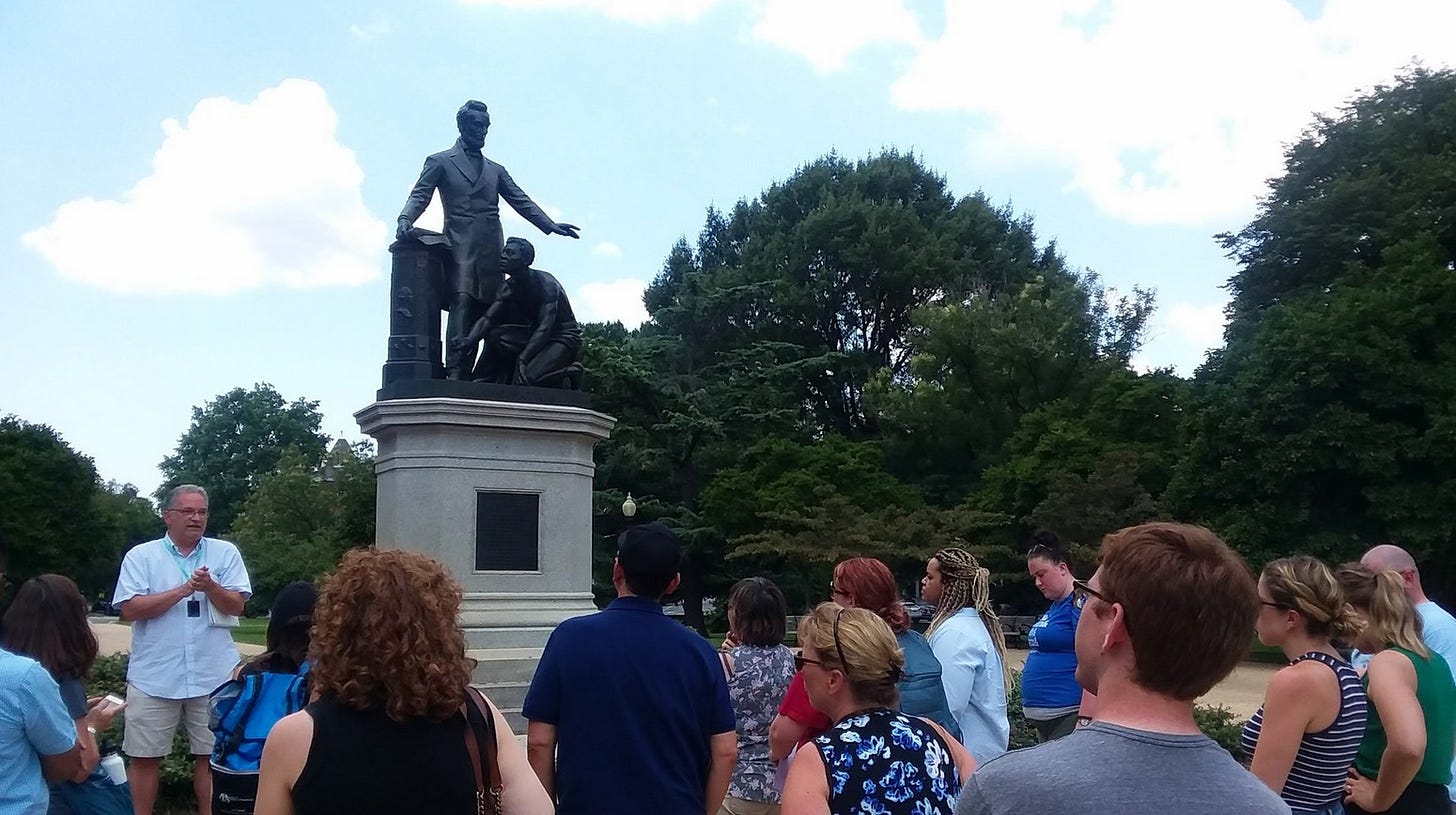If you believe Republicans and their conservative allies you might think that history teachers are using their summer break to plot their next moves in an endless quest to convince their white students to accept blame for all the horrible things that have happened in the past and to turn students generally against the United States.
In reality, teachers are not trying to upend the curriculum with Critical Race Theory and the 1619 Project. They are using their free time to take part in professional development workshops in their communities and across the country. Many are just trying to improve their teaching skills or deepen their understanding of certain topics.
Next week I travel to D.C. to help out with just such a workshop at Ford’s Theatre, which focuses on the history of Reconstruction and Civil War memory.
This morning I read about teachers in Alabama, who are traveling to archival sites around the state to study the history of the Civil Rights Movement. Reading this piece is a reminder that the very idea of a summer break or vacation for teachers is a misnomer. The most dedicated educators are taking advantage of opportunities that will benefit their students come August and September.
As a historian and educator I take the archives for granted, but I suspect that most history teachers have never had the opportunity to explore these places of discovery. Even after twenty-five years of research and writing I still feel the magic of the archive. The distance between the past and present collapses for me when holding a letter or other artifact.
Next week our teachers will spend time in the archives at Howard University.
It’s an invaluable experience. If done right, teachers will also be exposed to how historians begin the process of gathering documents and the process of posing questions. Archival materials don’t speak for themselves. They must be interpreted and this can take time, sometimes involving years of investigation.
In other words, it’s not enough just to bring the documents back to the classroom. Teachers must, to the best of their ability, introduce their students to the process of interpretation—the very building blocks of history.
These days you don’t need to travel to a physical archive. More and more primary source material is being digitized and available for public consumption. This is a welcome development, but it introduces the additional challenge of how to effectively search and access these materials in ways that are useful for classroom use.
We are so focused on the growing political divide surrounding history education that we have completely lost sight of the importance of teaching students how to think like historians.
The vast majority of history educators that I have come across over the past twenty years are not ideologues. They have a curriculum that they have to teach, but they also want their students to be able to think critically about history. Right now thousands of history educators are working toward that very goal.
Think about that next time an elected official chooses to vilify your local teachers and turn them into political scapegoats.





I have long wondered what it looks like to take notes from archival sources to build historical arguments. I imagine it involves taking a lot of photographs so you have the original text that you can write interpretive notes beside. Otherwise, wouldn't it involve a lot of quoting, as we can't take the archives with us (alas) to refer to later. Is there a chance you might explore what that process looks like in a future post?
Strange that teachers, who do such an important job under such tough conditions (low pay, etc.), receive so little respect in US society. Possibly anti-intellectualism, a long thread in US society, contributes. I'm old enough to remember disparaging references to "eggheads" and "nattering nabobs of negativity".
Much looking forward to a report on your trip. Safe and enjaoyable travels!